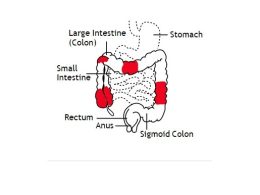When you suffer from depression, it can feel like you will never be happy again. You may feel the darkness is too overwhelming ever to be lifted. However, this feeling is only momentary, and there are ways that you can begin to cope with depression, recover, and move forward in your life once again. Everyone deals with ups and downs – we all have moments when we’re sad or stressed about something. But for some people, these downs last long and impact their everyday life. If you are reading this article because someone you know has been diagnosed with depression, hope and help is available. This article will provide information on what depression is, how to cope with depression, things to do if you think you may be depressed, and support services that can help.
What is Depression?
Depression is a mental illness that causes sadness, hopelessness, and a loss of interest in activities you used to enjoy. Depression can also cause sleeping, eating, energy, and motivation problems. It can affect how you think about yourself and how you view the world around you. Depression is not a normal part of aging nor a sign of weakness. It is a real medical illness that disrupts the way your brain functions, just like diabetes disrupts your body functions. It is a common condition that affects millions of people of all ages and cultures. Depression is not a sign of weakness. It is a real illness that disrupts the chemicals in your brain. It may also have a genetic component so that it could run in your family. There are many types of depression. People can also have a combination of different types at once. Depression is not a sign of weakness. It’s a real illness that disrupts the chemicals in your brain. Depression can affect anyone at any age. It’s very common in teens and older adults, but it can happen to people of any age.
What Causes Depression?
The causes of depression are multifactorial, meaning that a combination of factors may make you more likely to suffer from depression. However, it is important to note that not everyone with these factors will develop depression, nor will everyone with depression have all of these risk factors. A genetic component also makes some people more susceptible to depression than others. – Life events – This refers to stressful events, losses, or changes in your life, such as the death of a loved one, divorce, or a natural disaster. – Personality traits – Certain personality traits may make you more susceptible to depression, such as negative thoughts or feelings, low self-esteem, or feelings of helplessness.
Ways to cope with depression
– Exercise: Exercise has been shown to help with various mental health issues, including depression. It can help you to feel better about yourself and your body by boosting your self-esteem and confidence. It can improve your mood by releasing endorphins, your “feel-good” chemicals. It can also help you think more clearly when feeling anxious or depressed. – Nutrition: You may have heard that what you put into your body greatly impacts your mental health. While eating a healthy diet may not cure your depression, it can help to prevent the worsening of symptoms by providing your brain with the nutrients it needs to function well. Eating a balanced diet with plenty of fruits, vegetables, whole grains, and low amounts of sugar and salt can help improve your mental health. – Therapy: Many types of therapy can help you with depression, including talk therapy, group therapy, and various types of psychotherapy. – Sleep: Sleep is an important factor in keeping your mood stable, so when you’re depressed, you may not be getting enough. Sleep can help reduce symptoms of depression, so make sure you’re getting enough.
Support services are available for those suffering from depression
– Doctors: If you are diagnosed with depression, your doctor can prescribe antidepressants. While this may seem like the only option, it is important to note that many different antidepressants have different side effects for each. Your doctor can help you to choose the best one based on your symptoms, medical history, and other factors. – Therapists: A therapist can help you to work through your emotions and thoughts while you deal with depression. Different types of therapists may be better suited to people based on their needs, including cognitive-behavioral and psychotherapists. – Support groups: There are support groups for those with depression, caregivers of someone with depression, and those who have recovered from depression. Talking with others who have had similar experiences can help manage symptoms and get you back on track. There are top Christian depression treatment centers that you can take help from.
Conclusion
If you or someone you know suffers from depression, then it is important to seek help. Depression is a real illness that disrupts the chemicals in your brain. It may also have a genetic component so that it could run in your family. There are many types of depression, and not everyone will experience the above risk factors. It is important to note that not everyone with these factors will develop depression, nor will everyone with depression have all of these risk factors. There are many ways to cope with depression, such as therapy, support groups, and medication. There are also support services available for those who are suffering from depression.









